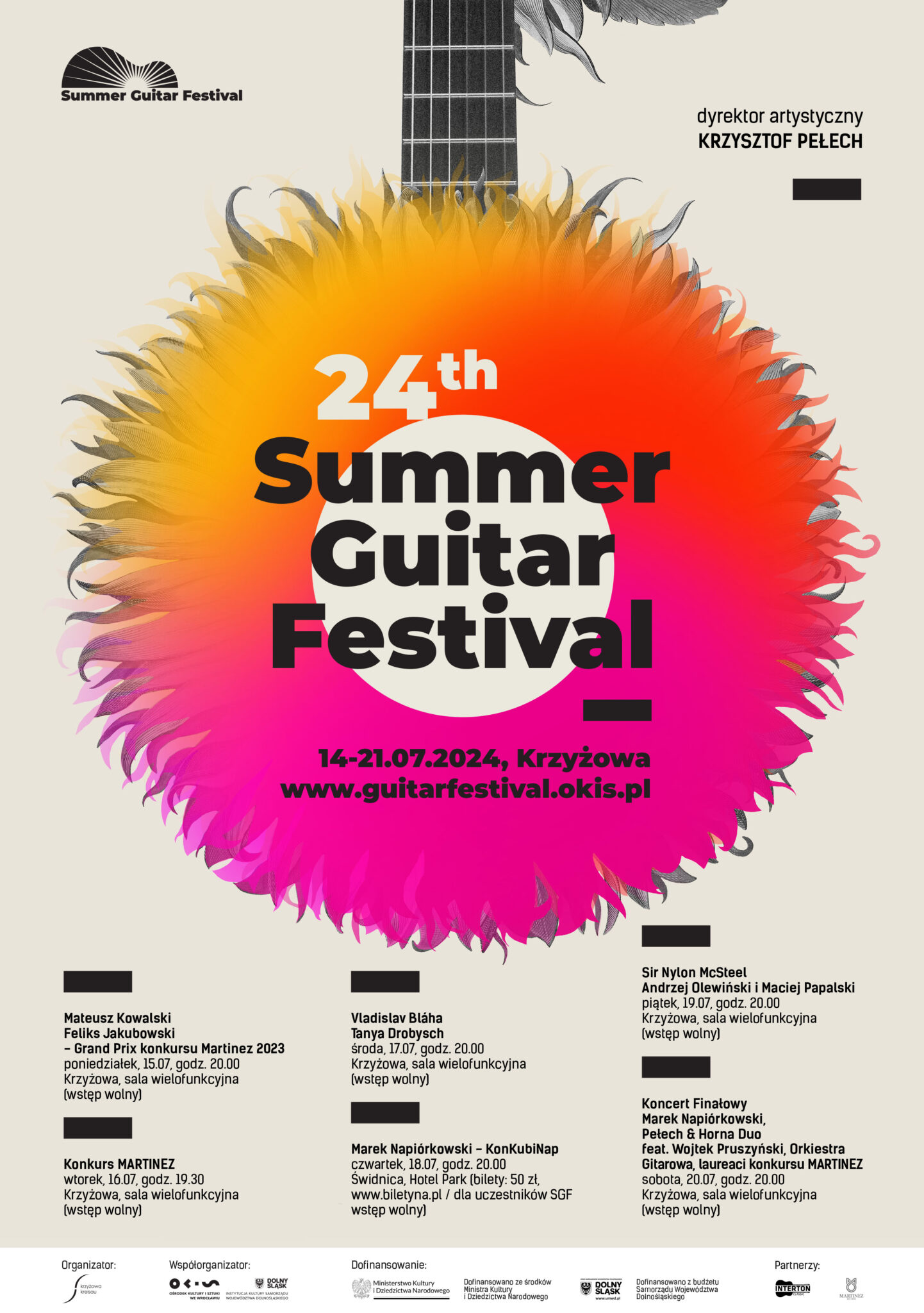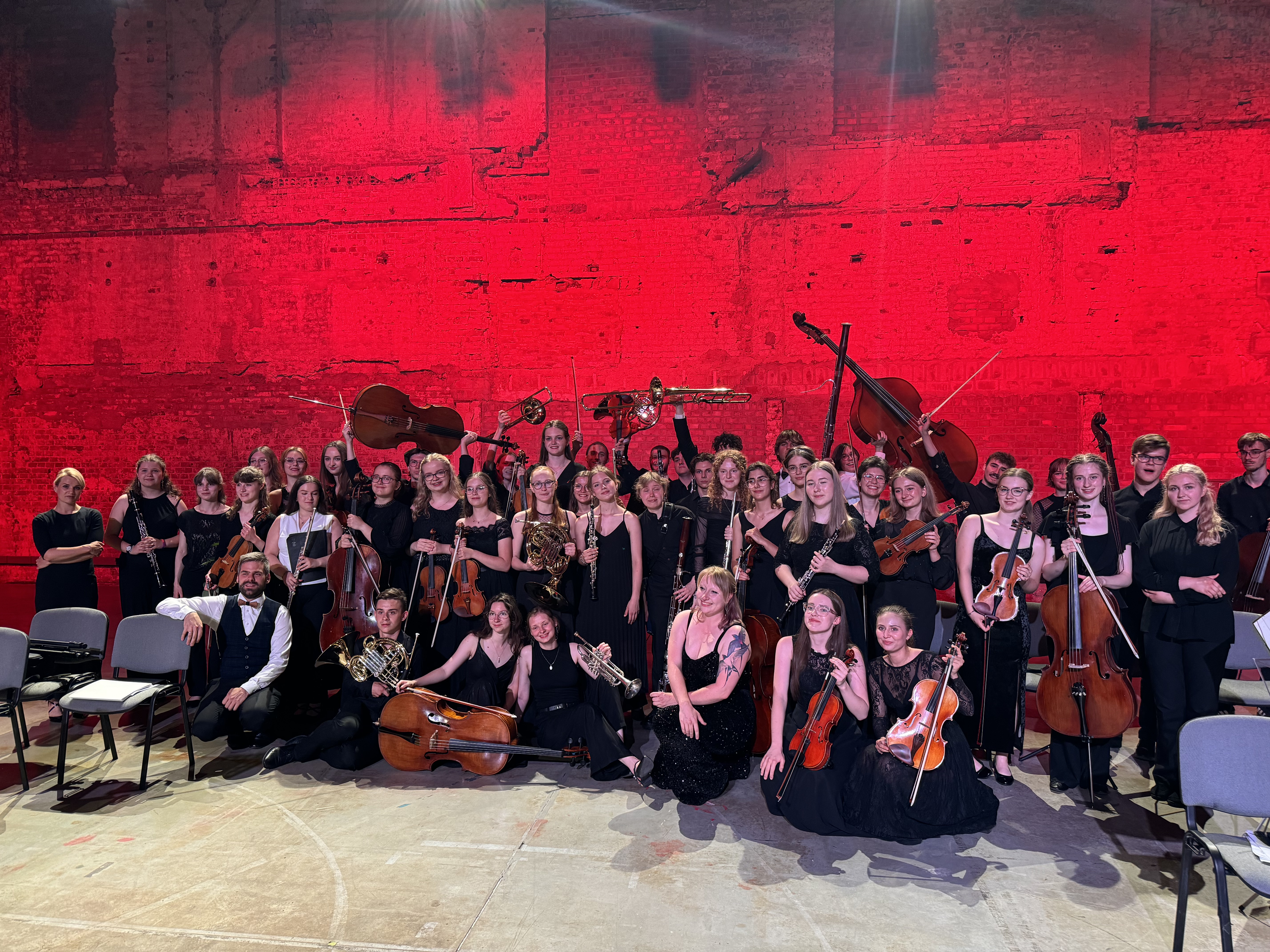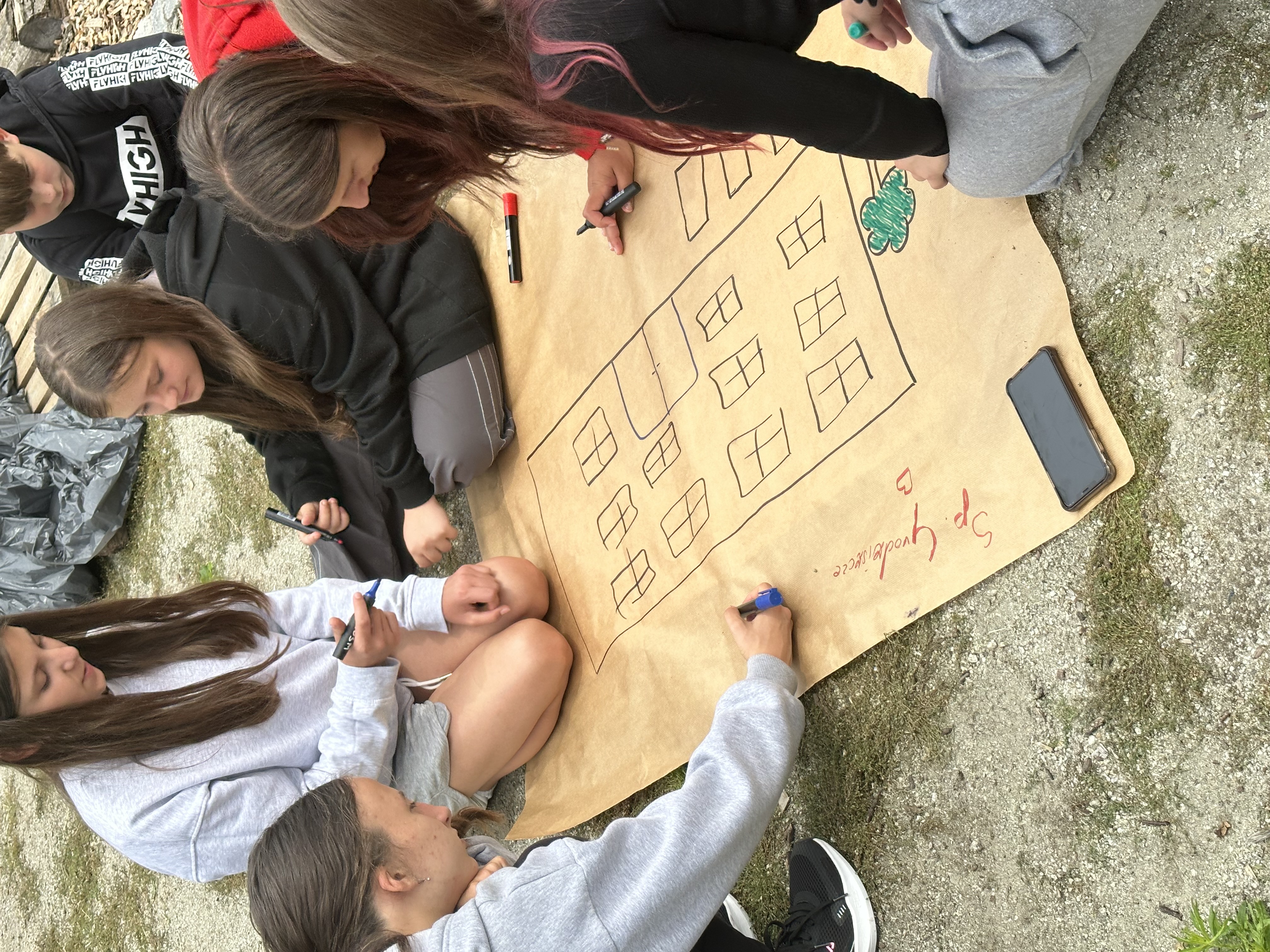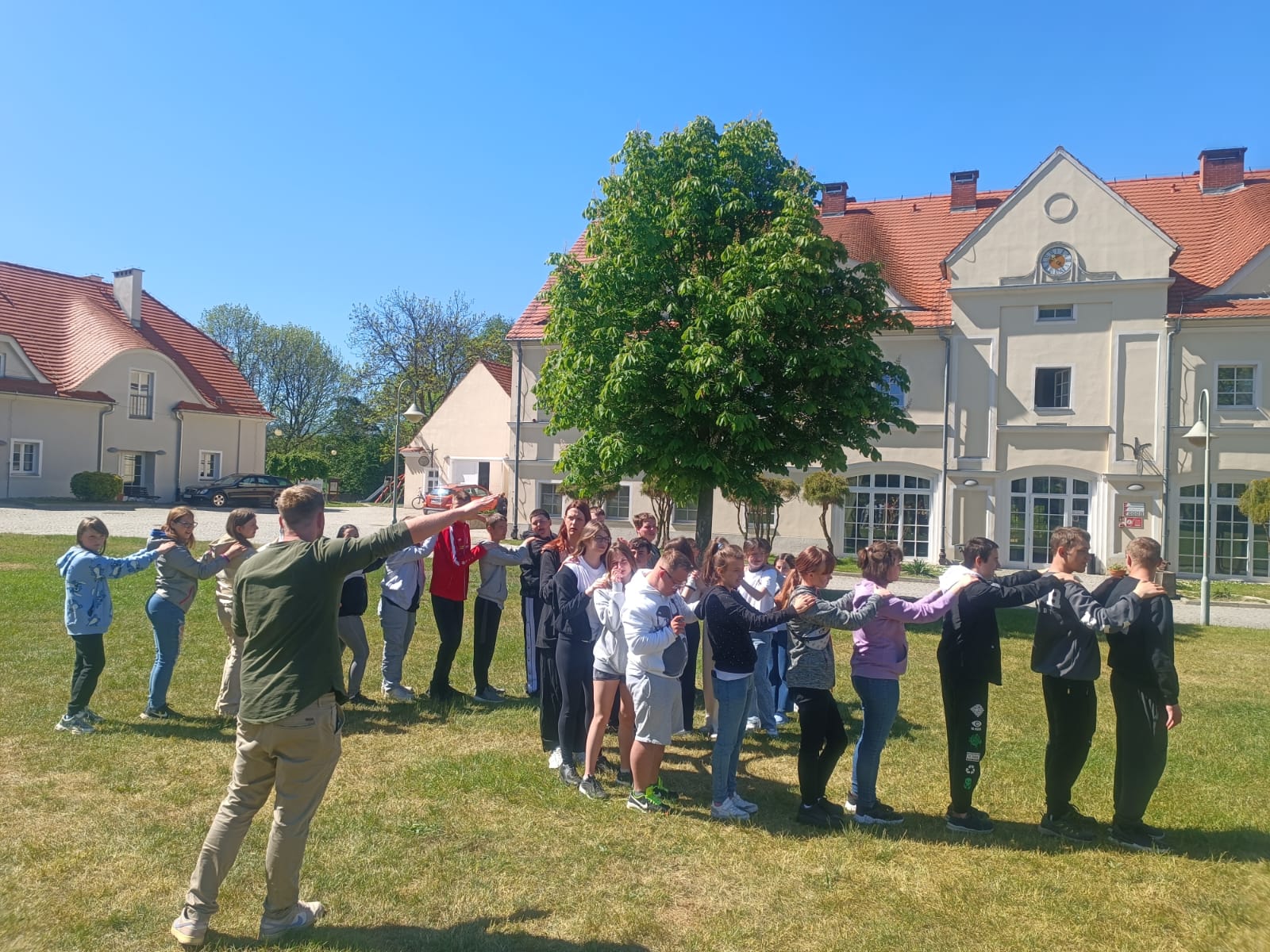
We are delighted to invite you to the 24th Summer Guitar Festival, which will take place from July 14th to July 21st, 2024 in Krzyżowa. This unique musical event, organized by the Krzyżowa Foundation for Mutual Understanding in Europe and the Centre for Culture and Arts in Wrocław, will bring together outstanding guitarists from Poland and abroad, offering unforgettable concerts and a rich artistic program.
During the festival, you will have the opportunity to attend a series of concerts, workshops, and meetings with guitar masters. The festival program includes:
July 15, 2024 / MONDAY
20:00-21:30 Concert: Mateusz Kowalski, Feliks Jakubowski – Grand Prix Martinez 2023
Where: Krzyżowa, multifunctional hall
Admission: Free
July 16, 2024 / TUESDAY
19:30-22:30 Martinez Competition
Where: Krzyżowa, multifunctional hall
Admission: Free
Read more: Join Us for the Concerts of the 24th Summer Guitar Festival in Krzyżowa

We joyfully recall the exceptional final concert of the international project "MUSIC FOR FUTURE" which took place on July 6, 2024, at the Center for Performing Arts (Piekarnia Żywa Kultura) in Wrocław. The concert featured a youth orchestra composed of talented young musicians from Poland, Ukraine, and Germany. It was not only a musical event but also a celebration of integration, mutual understanding, and collective creativity.
The concert began with a brief yet emotional piece by Terry Riley, "In C" setting the enchanting tone for the evening.
Following this, speeches and greetings were delivered:
Dorota Krajdocha, Board Member and Managing Director of the Krzyżowa Foundation, warmly welcomed everyone and emphasized the importance of international cooperation.
Yurii Tokar, Consul General of Ukraine in Wrocław, expressed his joy at participating in such a unique event.
Torsten Göhler, Deputy Consul General of Germany in Wrocław, highlighted the significance of culture and music in building bridges between nations.
Read more: "MUSIC FOR FUTURE" photo report from the final concert!
 On 14.06 we launched a new project with the graceful name "Gardens at schools as a tool for community education, integration and adaptation."
On 14.06 we launched a new project with the graceful name "Gardens at schools as a tool for community education, integration and adaptation."
The project is about establishing gardens, food production, our food habits, as well as recreational, artistic and therapeutic values. We passed the time getting to know each other's students, teachers and parents from the Elementary Schools of Lutomia Dolna, Grodziszcz and Witoszow Dolny, where educational gardens will be created.
Read more: Opening of the project (photo report) - "Gardens by the schools..."







